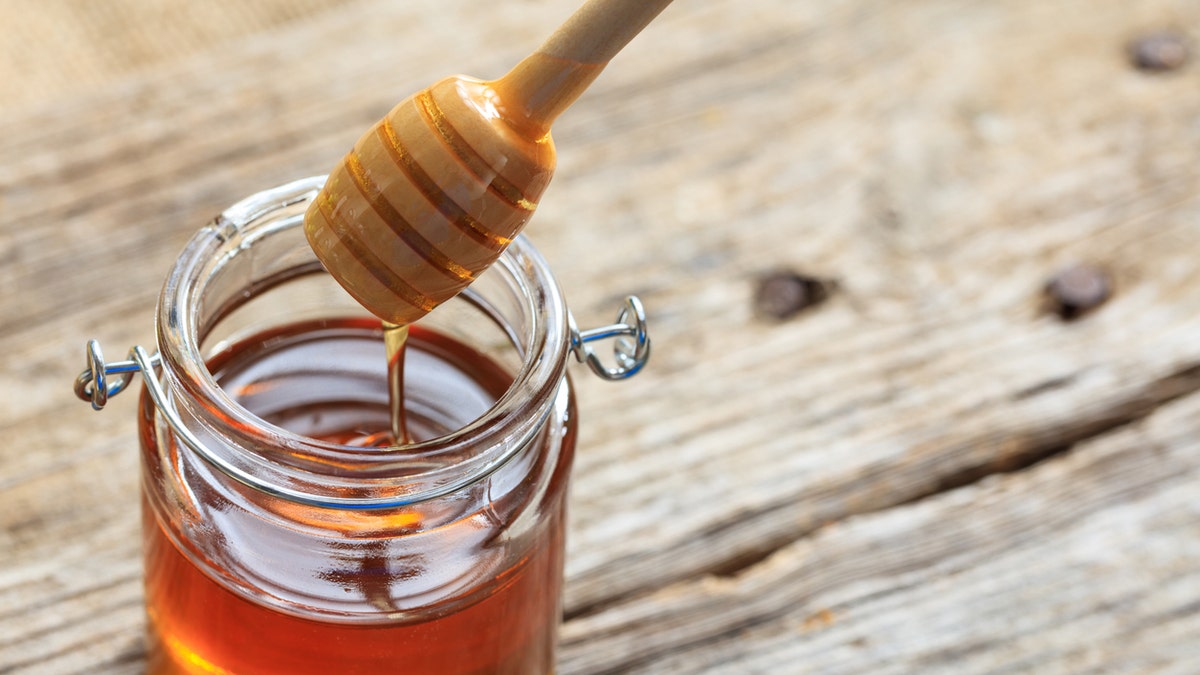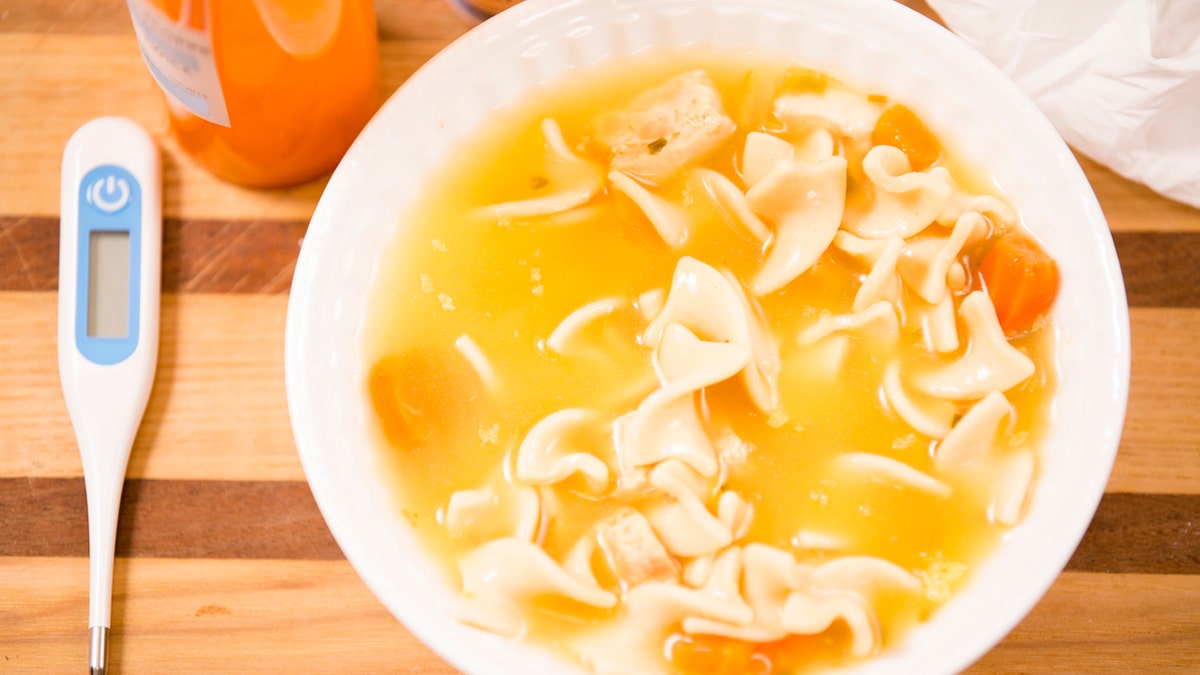As cold and flu season gets underway this fall, Fox News Digital reached out to and spoke with a number of health professionals for their advice on natural remedies to consider when a person comes down with either of these illnesses.
Here are their recommendations, advice and insight.
As always, it’s wise to check with your physician or health care provider if you have any questions or concerns about your health or symptoms you might be experiencing, as everyone’s situation is different.
THE TRUTH ABOUT WHY YOU FEEL MORE ACHES AND PAINS IN THE COLD WEATHER — AND WHAT TO DO ABOUT IT
Here are 10 ideas to consider.
1. Vitamin C
Those who feel that they’re coming down with something might look to take vitamin supplements, particularly vitamin C and vitamin D3, experts suggested.
Vitamin C is found in citrus fruits and is also available in supplement form, Dr. Naval Parikh, chief of medicine at Broward Health North, a Level 2 Trauma Center in South Florida, told Fox News Digital.
An ill person should take “at least 1000 mg daily” of vitamin C, he said.
Vitamin C contains antioxidants, which “protect our cells from damaging substances called free radicals,” said Dr. Summer Kerley, a North Carolina-based vice president of clinical operations and health plan solutions at Rite Aid.
Still, be careful about the amounts taken.
“Serious side effects from too much vitamin C are very rare, because the body cannot store the vitamin,” according to the website of the Mount Sinai Health Network system in New York. “However, amounts greater than 2,000 mg/day are not recommended. Doses this high can lead to stomach upset and diarrhea, and rarely, kidney stones.”
Also, “large doses of vitamin C supplementation are not recommended during pregnancy.”
2. Vitamin D3
Kerley of North Carolina also recommended vitamin D3. It “serves as a great dose of daily sunshine, and has been known to help support the immune system in fighting off viruses,” she said.
OHIO WOMAN WHO LOST ALL FOUR LIMBS TO FLU COMPLICATIONS SPEAKS OUT TO RAISE AWARENESS
Too much of it can also prove harmful.
“The main consequence of vitamin D toxicity is a buildup of calcium in your blood (hypercalcemia), which can cause nausea and vomiting, weakness and frequent urination,” according to the Mayo Clinic. “Vitamin D toxicity might progress to bone pain and kidney problems, such as the formation of calcium stones.”
3. Zinc
An essential mineral, zinc is another natural remedy that has proven successful in treating cold symptoms.
Zinc is “important for immune cell function, which supports the body’s defense against infection,” said Kerley. “Supplementing with zinc may help support a healthy immune system.”

A person can take zinc supplements or use a product such as Zicam.
“Take zinc supplements within the first three days of the onset of symptoms,” said Parikh.
COLD AND FLU SEASON IS COMING: KNOW THE WARNING SIGNS AND SYMPTOMS NOW
Be sure to follow instructions carefully, however.
The overuse of zinc sprays has “been associated with a permanent loss of smell,” said Dr. Benjamin Jack, an emergency physician and founder of the Texas-based company Duration Health.
4. Honey
“Honey has been found to be effective in reducing coughs in both adults and children,” said Jack.

He stressed that “it’s important to remember that honey should not be given to infants under one year old” — as it could cause infant botulism.
5. Elderberries
Elderberries, a medicinal plant, have been taken for years to treat cold and flu symptoms as well as to strengthen the immune system.
FLU PREVENTION TIPS FROM FLORIDA’S SURGEON GENERAL: A ‘DAY-TO-DAY’ HEALTHY LIFESTYLE IS KEY
“Rich in antioxidants, elderberry may support immune function and reduce symptoms of upper respiratory infections,” said Kerley.
6. Chicken soup
A study by the University of Nebraska Medical Center (UNMC) in the 1990s found that chicken soup is actually an effective treatment for colds.
The peer-reviewed study was first published in 1993 — and again in 2000.
ASK A DOC: ‘DOES CHICKEN SOUP REALLY HELP CURE A COLD?’
Stephen Rennard, M.D., put his wife’s grandmother’s chicken soup recipe to the test in a laboratory — and found that “there are ingredients in common foodstuffs that might have anti-inflammatory actions.”

Parikh also spoke highly of a vegetarian cold remedy he was given as a child when he was sick.
“An old natural Indian remedy that is given [is made] of warm water, salt, turmeric and ghee,” he said. Ghee is a clarified butter.
“My mother gave this to me as a child and I still use it when I have cold or flu-like symptoms,” he added. “It helps relieve chest congestion, soothe a sore throat and relieve my cough.”
7. Saline sprays
“Saline nasal sprays are a safe and simple solution” to help address congestion, said Jack.
COVID-19, FLU AND RSV VACCINES ARE ALL AVAILABLE THIS FALL: SEE WHAT SOME DOCTORS RECOMMEND AND WHY
“They are effective and usually don’t have the side effects associated with medicated sprays,” the doctor also said.
8. Hot shower
“A hot steamy shower” can do wonders to relieve congestion and make a cold or flu much less miserable, said Parikh.

Vicks Vapo-rub is also effective in reducing cough, he added.
9. Healthy eating
“The best way to strengthen your immune system is to eat a well-balanced, nutrient-rich diet” before getting sick, said Kerley.
CLICK HERE TO SIGN UP FOR OUR HEALTH NEWSLETTER
This should include “plenty of foods with vitamin C, like broccoli, oranges or cantaloupe.”

“Antioxidant-rich, colorful fruits and vegetables, such as berries, carrots and spinach, help support immunity by protecting your body from harmful compounds called free radicals,” she said.
“Try to avoid processed foods and excess sugars,” and “stay hydrated with plenty of water and other sugar- and caffeine-free beverages.”
Tea, as well, can serve as an anti-inflammatory, said Parikh.
10. Good night’s sleep
The importance of a good night’s sleep and resting when ill cannot be understated, several doctors told Fox News Digital.

“Adults need at least seven to eight hours of quality sleep each night. It is our body’s time to regenerate new cells and acquire the energy needed to fight off infection. Sleep deprivation can decrease immune function,” said Kerley.
Those who have trouble falling asleep could try an essential oil, such as lavender oil, to help aid sleep, she said.
Also, “physical exertion is bad for the immune system when sick,” said Parikh.
“Get plenty of rest and sleep.”
For more Health articles, visit www.foxnews.com/health.
Read the full article here